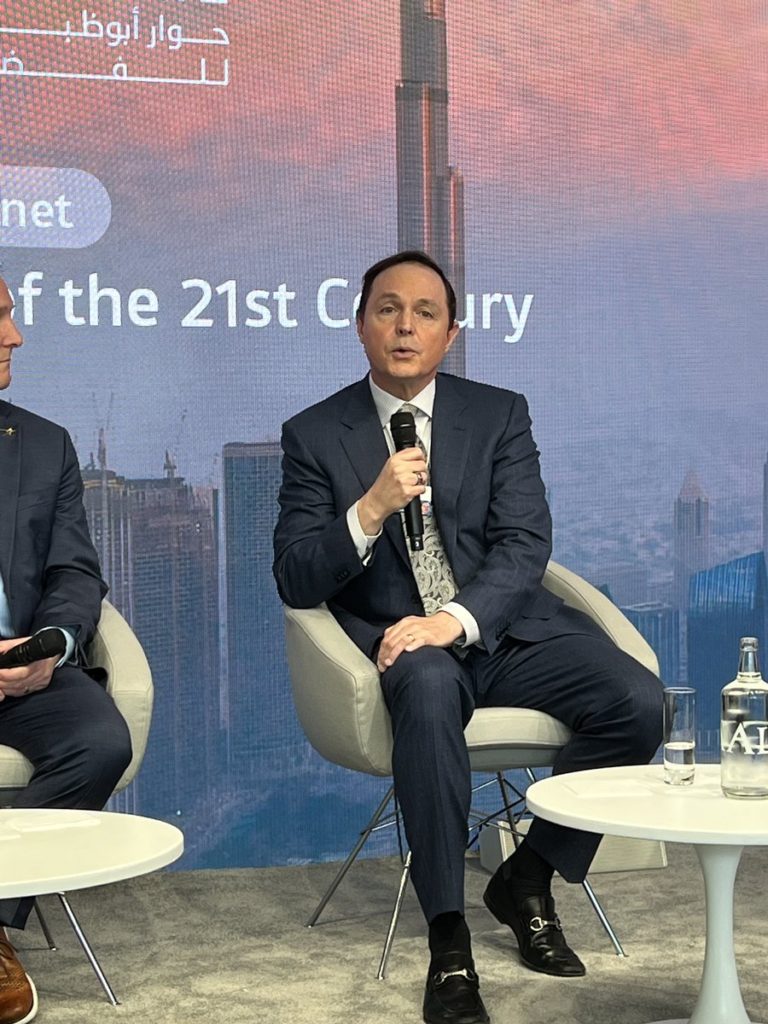Davos’ Annual Meeting is a conference that brings together government officials, business and civil society leaders with the expertise and means to make positive change happen in the world. Established more than 50 years ago, ‘the spirit of Davos’ is a central attitude of the meeting, which celebrates openness and cooperation that are core to the mission of the Forum.
This year’s Annual Conference in Davos, Switzerland, held from January 16th to 20th, will bring together 2,700 leaders in business and society, including 52 heads of state and government from 130 countries.
The pertinent theme of the 2023 conference, “Cooperation in a Fragmented World” asks us to examine the many crises that are creating deeper divisions and fragmenting the world’s current geopolitical landscape. Leaders need to address people’s immediate needs while building a foundation for a more sustainable and resilient world by the end of this decade — and the discussions at Davos can spearhead visionary change.
According to Klaus Schwab, the Founder and Executive Chairman of the World Economic Forum, “We see the manifold political, economic and social forces creating increased fragmentation on a global and national level. To address the root causes of this erosion of trust, we need to reinforce cooperation between the government and business sectors, creating the conditions for a strong and durable recovery. At the same time there must be the recognition that economic development needs to be made more resilient, more sustainable and nobody should be left behind.”
The agenda for the 53rd Annual Meeting features discussions on the solutions and focuses on the public-private cooperation to take on the world’s most demanding challenges. World leaders are encouraged to collaborate on issues including jobs, skills, social mobility and human health; energy, climate and nature; frontier technologies and industry resilience; investment and infrastructure; and geopolitical cooperation. Gender and geographical diversity will be addressed across all sessions. These sessions will provide essential platforms for construction, forward-thinking discussions and developments that help find solutions.
Please follow our sessions by searching for the hashtag #wef23 on The World Economic Forum’s digital channels. You can also live stream over 200 sessions to catch up on all the coverage here. The WEF’s coverage will capture key moments, including summaries, quotes, photos, podcasts and more.
January 17th: The Future of Earth: LEO Politics of the 21st century Panel


The Annual Meeting in Davos, Switzerland, kicked off to a great start. On January 17th, I enjoyed participating on the Panel covering Low Earth Orbit, “The Future of Earth: LEO Politics of the 21st century”, and sustainability hosted by the Abu Dhabi Space Debate at the UAE Pavilion.
Moderated by Jesse Klempner of McKinsey, the panelists included myself, Dan Tenney with Lockheed Martin Space and Will Marshall of Planet Labs. We covered a wide range of topics, including space debris, theoretical areas for China/US collaboration, the power of space to transform, the explosion of space-based data and the impact Artificial Intelligence will likely have on the industry.
The Abu Dhabi Space Debate fosters discussion and dialogue on the global space community’s most pressing issues, including this panel discussion on LEO clutter and many other events organized at the World Economic Forum. The Panel reflects the UAE’s strategic international position in the space race and WEF helps give a platform to share future visions and tools to develop sustainable solutions in the space sector while promoting collaboration between industry professionals and stakeholders to avoid the threat of any future collisions or conflicts.
Stay tuned for more updates from the World Economic Forum’s annual meeting!
January 19th: Bloomberg Quick Takes
It was great appearing live from Davos 2023 on Bloomberg Quick Takes with Mady Mills to discuss the space industry and the rise of private space stations, as well as my own personal spaceflight.
In this interview, I mention how Voyager Space is engaging with key stakeholders on StarLab, a replacement to the International Space Station that should be in orbit by 2028. StarLab will mark the first commercial space station in orbit after the ISS is deorbited around 2030. Given the success the industry has experienced with privatizing rocket launches, the same model is being applied to commercial space stations.
I also touch on how one of the key misunderstandings about space travel is for humans to escape Earth, but we really explore space to benefit Earth. One example is evident in all the climate change data we have from space. The transformative experience of flying to space and how it needs to become more equitable for everyday citizens in the future is also important for people to better understand space exploration’s role in bettering society and allowing us these life-changing experiences.
In 2023, one of the biggest space stories will be SpaceX’s launch and orbit of their new Starship, which is their next generation, fully reusable rocket. If successful, which I think it will be, it could completely change the game and significantly reduce launch costs by another order of magnitude.
As I mentioned in the video, I’m energized about where we are, and even more excited about where we’re heading.
Check out the interview below!
January 19th: “Closer to the Final Frontier?” Panel at Davos
On January 19th, at The Annual Meeting in Davos, I participated in the “Closer to the Final Frontier?” panel hosted by Alison Snyder, the Managing Editor of Axios, USA.
The panel touched on everything from space investing to satellite congestion and new space stations to the advanced Earth observation opportunities, which all highlight how the space sector is pushing the limits of technology further than ever before.
The panelists included myself, Sarah Al Amiri, Minister of Public Education and Advanced Technology at the United Arab Emirates Space Agency, Dava Newman, Director of the MIT’s Media Laboratory and Rajeev SuriIn, CEO Inmarsat Global. In the video, we discuss what these advances will bring to society and what the sector will look like by the end of this decade.
In particular, I discuss the most significant opportunities for growth in the space sector. I mentioned that throughout the 2010s, the space industry was focused on access to space and reliable, reusable launches — and we did a great job. The 2020s will be about destinations where we’re going, like Mars and landing back on the Moon. Crucially, it’s essential to create purpose-built space stations for certain uses that are not just commercial-based ventures focused on a specific country. It needs to be international cooperation, the best of humanity. When I fast forward to the end of the 2020s, I see at least two space stations up there and hopefully, they’ll be the best examples of what the ISS does well, but also the commercial sector.
Watch our panel discussion below:






